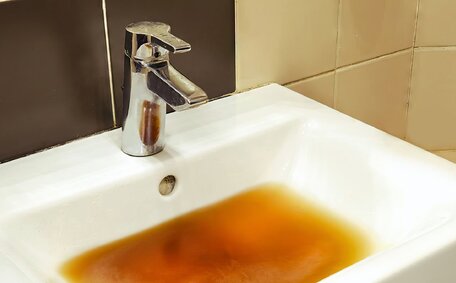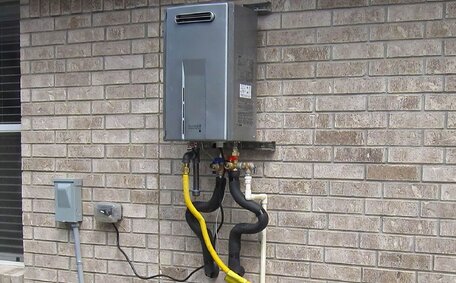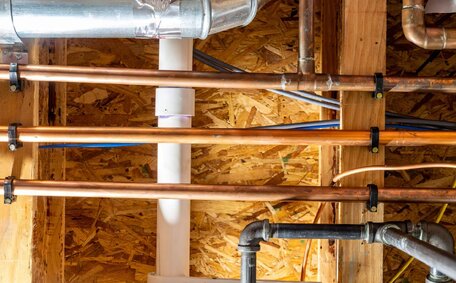Recognising Gas Appliance Warning Signs
Indoor gas appliances, including LP gas units, provide essential services, yet strict safety protocols are vital to prevent hazards. It is critical to understand the warning signs gas appliances exhibit, which may indicate problems such as potential CO poisoning, so you can act quickly.
Key Signs of Gas Appliance Problems
Yellow, flickering flames or an abundance of soot from your gas appliance are immediate cause for concern. A consistent rotten-egg odour, added to natural gas for detection, indicates a potential gas leak that requires urgent attention. Other warning signs including the sound of hissing or whistling should prompt immediate action and include:
- Hissing or whistling noises
- Pilot lights frequently blowing out
- Soot building up on appliances
- Unusually high gas bills
If you encounter any of these signs, turn off the appliance and call a licensed gasfitter to inspect for leaks or malfunctions. Ignoring warning signals can cause dangerous scenarios, as leaks can become severe, and the well-being of your family depends on timely detection and resolution of these issues, including regular servicing of your heater. Stay alert to adhere to gas safety measures and protect your family.
Conducting At-Home Gas Leak Tests
If you notice bubbles when using soapy water during a test, this can also indicate that open flued gas may be escaping at that connection point. Take action to preempt any potential gas leakage by including:
- Inspect your gas cylinder’s hoses and fittings for any indications of wear or damage.
- Examine connections for leaks after events like earthquakes or when shifting appliances.
- Observe each appliance closely during tests and ensure a clear exit strategy is in place.
While DIY tests help identify possible gas issues, they are no substitute for annual professional inspections. Should you suspect a gas leak, shut off your gas supply immediately and contact your gas supplier or licensed technicians.
Getting Professional Servicing for Gas Appliances
Skilled technicians must service your gas heater regularly to mitigate risks such as gas leaks, CO poisoning, and fires. Make sure they examine for carbon monoxide (CO) emissions and uphold the care of your appliances according to industry benchmarks, advising checks every two years or annually for appliances exceeding a decade in age.
Licensed technicians should carry out thorough safety checks and maintenance during servicing, particularly for space heaters, covering:
- Meticulously inspecting gas burner elements, heat exchanger units, gas pipes, and valves for any indications of cracks or damage
- Ensure your natural gas equipment is tested for secure connections with sensitive leak detection equipment.
- Assessing ventilation to prevent negative pressure and flue performance
- Tuning and adjusting components for optimal performance
- Verifying safety controls are working properly
Only entrust licensed gas professionals, like those at Vaucluse Plumbing, with these critical servicing tasks. Taking a DIY approach with your gas system risks nullifying warranties and overlooks the fact that gas can escape with serious safety consequences. Don’t jeopardise your property and family’s safety; opt for professional evaluations for peace of mind.
Installing Carbon Monoxide Detectors
Carbon monoxide (CO) detectors, crucial for any household to use gas safely and detect issues such as carbon monoxide CO leaks, are vital to protect against poisoning from your gas heater and other appliances. Carbon monoxide, lacking odour or colour, can accumulate unnoticed from faulty appliances, making detectors essential for early detection and poisoning prevention.
Placement Recommendations
Install a carbon monoxide detector on each level of your home, within a 5-metre radius of sleeping areas, and be aware of the steps to take when alarms sound. Additional placement should be in rooms where gas is utilised:
- Near gas heater units or where there gas usage is occurring, for instance near your gas stove
- Near areas where combustion products may be released
- Out of reach from children and pets
Regular Maintenance
Test your gas detector monthly and replace its batteries annually, or when you receive low battery alerts, to maintain leak detection efficacy. Units over 5-7 years old should be replaced. Properly maintained detectors provide essential alert capability for gas-related hazards.
Safety Tips for Preventing Gas Leaks and Hazards
Adhering to key gas safety tips can significantly minimise risks from gas leaks and related hazards in your home:
Ensure Proper Ventilation
All gas heaters and appliances can deplete indoor oxygen levels or emit harmful by-products like carbon monoxide, as they’re denser than air. Ensure doors and windows allow adequate ventilation to maintain safety around your natural gas heater by:
- Ensuring unflued gas appliances are aptly vented and mindful not to obstruct vents which can become blocked
- Employing exhaust fans and range hoods specifically while gas cooking is in progress
- Open doors and windows rapidly if you detect gas to guarantee a circulation of fresh air and safety
Avoid DIY Gas Work
Only a licensed gas professional should handle the installation, repair, or maintenance of gas lines and systems. Inexperienced attempts at gas repairs can lead to gas leak hazards, ignite fires, or cause explosions.
Conduct Safety Checks
Regularly inspect your gas meter and connections for corrosion, cracks, or loose fittings.
Check your gas heating appliance hoses routinely for deterioration and ensure all pilot lights remain lit.
Adherence to safe use guidelines is essential in securing homes from potential gas leaks. For all gas servicing needs, call a licensed gasfitter, such as Vaucluse Plumbing, to guarantee comprehensive and complete plumbing services.
What To Do In a Gas Leak Emergency
It’s crucial to know the critical steps to take should a gas leak occur in your home. Gas leaks pose serious risks of fire, explosion, and carbon monoxide poisoning. Follow these emergency steps:
- Evacuate the area. Get everyone out of the building and move a safe distance away. Do not re-enter until emergency crews advise you on what to do next.
- Avoid switches and electronics. Do not turn any electrical devices or switches on or off, as sparks could ignite leaking gas.
- Open doors and windows. Ventilate the area to allow gas to dissipate if safe to do so.
- Call 000. Emergency services will despatch gas utility crews and secure the site.
- Turn off gas supply. If safe, turn off your gas to cut the supply at the gas meter valve. Do not try this with a large leak or if gas control equipment is damaged.
- Do not relight appliances. Even if the gas smell seems to have gone, do not try to relight pilots or burners until professionally inspected.
Keep emergency contacts handy, like Vaucluse Plumbing on 1300 349 338 or [email protected], for immediate help with gas leak repair and ensuring appliances are mended or exchanged as necessary before you resume gas usage.
This page has been produced to inform readers about necessary actions in gas leak scenarios, requiring immediate response. Knowing the correct emergency response steps will help keep your home safe during a gas leak.






